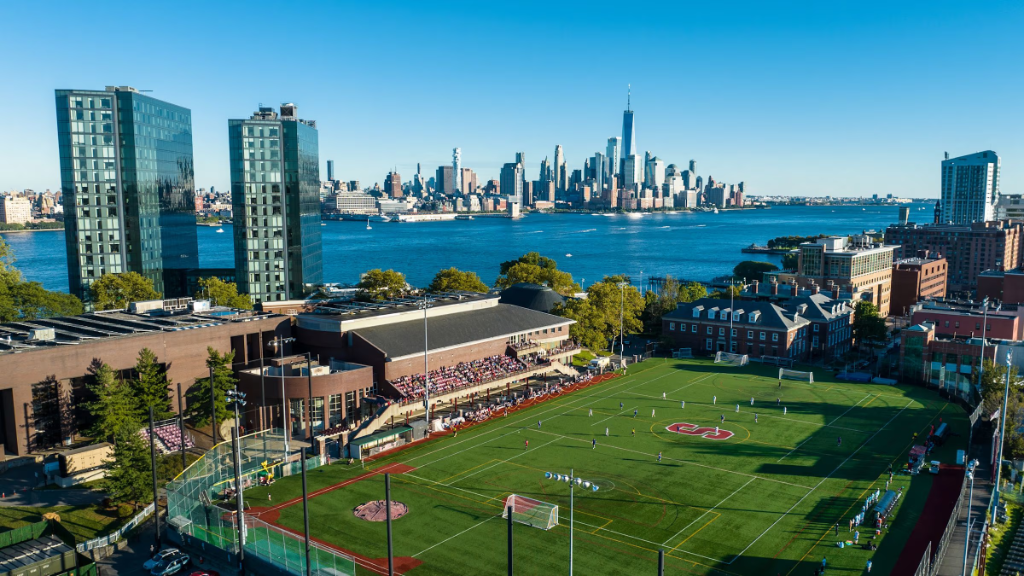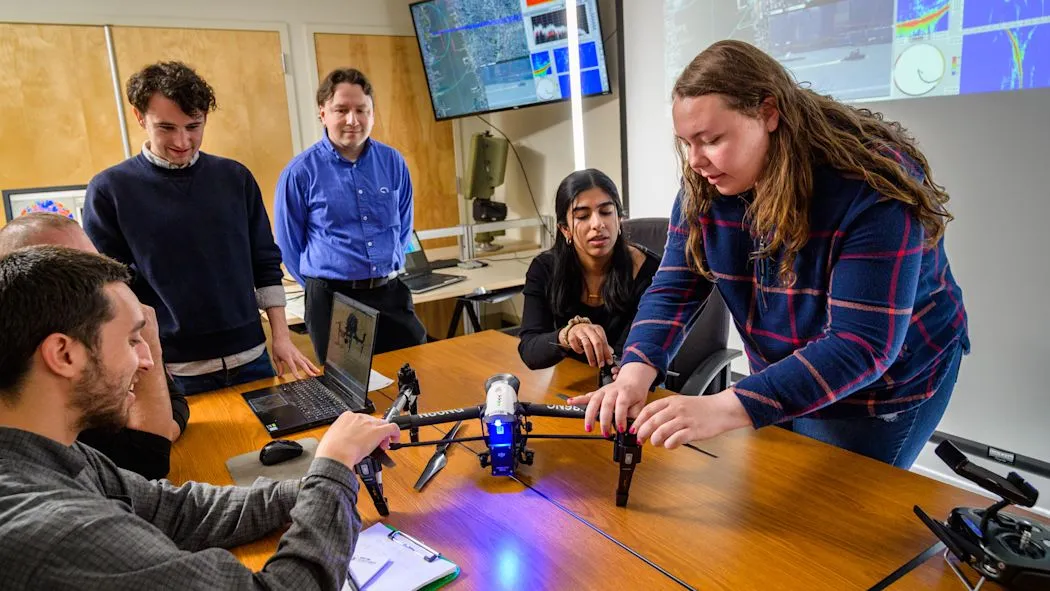Advance Your Career with a World-Class Online Degree from Stevens
A Degree That Pays Dividends
Stevens is consistently recognized for academic excellence and delivering an outstanding return on investment.
#1
Online MBA from a New Jersey school in 2025
U.S. News & World Report
7x
Winner of the 21st Century Award for Best Practices in Distance Learning
USDLA
#9
Ranks No. 9 among 'Best ROI Colleges'
*Based on the cost of a four-year bachelor's degree program
#19
Best Online Master's in Computer Information Technology Programs
U.S. News & World Report (2025)

No. 1 in New Jersey in Best Online Master's in Computer Information Technology Programs

No. 1 in New Jersey in Best Online MBA Programs

No. 36 Nationally in Best Online Engineering Programs
Source: U.S. News & World Report 2025
Discover Your Future at Stevens
Watch how Stevens Online transforms careers through innovative education, expert faculty, and flexible learning designed for working professionals.
THE STEVENS ONLINE ADVANTAGE
Our Online Master’s Degree Programs are designed to provide the same quality as our highly-ranked on-campus programs. We offer relevant courses, renowned faculty, and individualized support to each student.
Additional benefits of our StevensOnline programs include:
- Global cohort of classmates to learn with and from
- Direct access to experienced faculty
- Flexibility for how and where you study
Through our online offerings, you will gain access to the same quality programs and distinguished faculty as on-campus students.
ONLINE MASTER OF SCIENCE IN COMPUTER SCIENCE
Ranked No. 11 in New Jersey for Best Online Master's in Computer Information Technology Programs by U.S. News & World Report (2024), the online computer science master's program at Stevens offers you a curriculum aligned with high-demand areas such as software development, web programming, mobile systems and applications, cloud computing, human-computer interaction, and enterprise software design.
ONLINE MBA
The Stevens Online MBA is an AACSB-accredited program offered part time through online courses. The Online MBA combines business knowledge with the technology and analytics necessary to excel in today's data-centric world. Students will build upon their managerial toolkits with analytical, data literacy, marketing and operations management skills that drive data-based decisions.
ONLINE MASTER OF ENGINEERING IN ENGINEERING MANAGEMENT
Master the ability to interface between technology and business stakeholders. This program will advance your understanding of the technology involved in engineering projects and the management process through which the technology is applied. Graduates from the Online Master of Engineering in Engineering Management program are prepared to add value at the intersection of engineering and management and assume professional positions of increasing responsibility.
A Legacy of Innovation Meets Online Flexibility
At Stevens, you don't have to choose between a prestigious degree and a flexible online format. Our programs are designed for working professionals, offering the same rigorous curriculum and world-class faculty as our on-campus degrees. You'll gain career-ready skills and join a powerful alumni network, all on your schedule.


A Community That Supports Your Success
From your first inquiry to graduation and beyond, you are a valued member of the Stevens community. Our dedicated enrollment advisors, student support services, and active alumni network are here to help you achieve your goals. Engage with faculty and peers in a collaborative online environment built for connection.
"Stevens Online is dedicated to delivering world-class technology education to working professionals worldwide, empowering them to advance their careers and drive innovation in tomorrow's digital economy through flexible, accessible, and industry-relevant online programs."- Arshad Saiyed
Chief Online Learning Officer and Dean of the College of Professional Education
Key Dates & Deadlines
Plan your application for the upcoming Spring 2026 term.
| Term | Early Submit | Priority Submit | Final Submit | Start of Classes |
|---|---|---|---|---|
| Spring 2026 | October 14, 2025 Deposit Waiver* and Application Fee Waiver Available. | November 20, 2025 Application Fee Waiver Available and Early Application Review. | January 5, 2026 | January 20, 2026 |
Latest from Our Blog
Stay informed with insights, tips, and news about online education, career advancement, and technology trends.

Turning Data into Decisions: Alkis Vazacopoulos on the Power of Business Analytics
Alkis Vazacopoulos had already launched a successful business analytics and optimization career when he caught the teaching bug. In a recent interview, he explained that he was “inspired by a desire to share my real-world experiences with students and contribute to developing the next generation of analytics professionals… As someone who had implemented optimization solutions in companies across various sectors, I could help students understand not just the mathematical concepts, but their practical applications and limitations in real business settings.”

The Rise of Artificial Intelligence and Innovation in Engineering Management
Artificial intelligence has made its presence felt across countless industries and professions, with engineering management close to the epicenter. Companies leverage data to make important decisions about resources, risk, and recruiting; AI has made that process more powerful and more fraught with potential complications for engineering managers.

When is the Best Time to Earn Your Master’s in Engineering Management Degree?
Demand for engineering managers grows across healthcare, technology, construction, manufacturing and other industries. If you plan to pursue an engineering management career, an advanced degree – such as a master’s in engineering management – can provide a pathway to reaching your goals.




